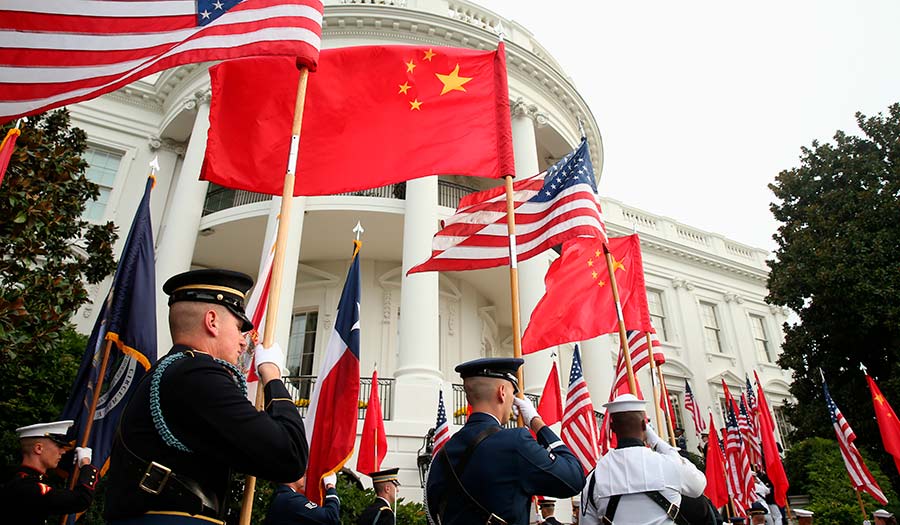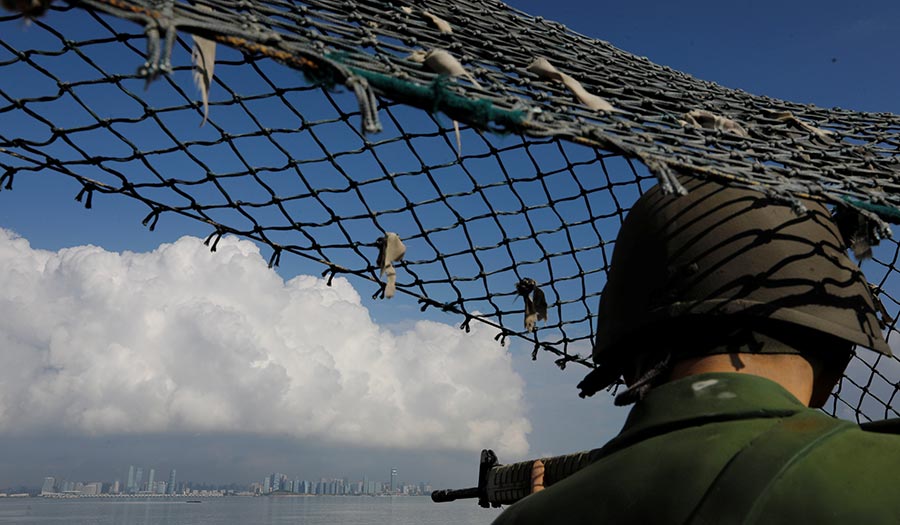 AP/Andrew Harnik
AP/Andrew Harnik
World News Desk
Learn the why behind the headlines.
Subscribe to the Real Truth for FREE news and analysis.
Subscribe NowThe United States on Monday approved a new major arms sale to Taiwan and slapped new sanctions on Chinese officials over the crackdown on pro-democracy advocates in Hong Kong.
The move targeted the vice chairpersons of the National People’s Congress Standing Committee (NPCSC), the top decision-making body of the Chinese legislature.
The State Department said it had approved a $280 million sale to Taiwan of advanced military communications equipment.
The moves angered China, whose foreign ministry summoned Washington’s top diplomat in China to express “strong indignation and strong condemnation.”
The U.S. actions “seriously violated the basic norms of international relations, seriously interfered in China’s domestic politics, seriously damaged China-U.S. relations, are arrogant, unreasonable and vile,” Vice Foreign Minister Zheng Zeguang was quoted as telling Deputy Chief of Mission Robert Forden.
Foreign ministry spokesperson Hua Chunying also condemned the new sanctions leveled against 14 officials in the standing committee of China’s legislature, which passed a sweeping Hong Kong National Security Law earlier this year.
China will “take resolute and forceful countermeasures and resolutely defend its sovereignty, security and development interests,” Mr. Hua said at a daily briefing.
The Trump administration earlier slapped sanctions on Hong Kong Chief Executive Carrie Lam, the Asian financial hub’s current and former police chiefs and other top officials in August for what it said was their role in curtailing freedoms in a crackdown on the territory’s pro-democracy movement.
“Beijing’s unrelenting assault against Hong Kong’s democratic processes has gutted its Legislative Council, rendering the body a rubber stamp devoid of meaningful opposition,” U.S. Secretary of State Mike Pompeo said in a statement.
Hong Kong’s Beijing-backed government last month expelled four opposition members from its legislature after China’s parliament gave city authorities new powers to curb dissent. The move triggered mass resignations by pro-democracy opposition lawmakers in the former British colony.
White House national security adviser Robert O’Brien said in November the expulsion showed the “One Country, Two Systems” formula, under which Hong Kong’s autonomy was to be safeguarded after Britain handed the territory back to China in 1997, was now “merely a fig leaf,” and he promised further U.S. action.
Mr. Pompeo said the NPCSC has effectively “neutered” the ability of people in Hong Kong to choose their elected representatives. “These actions demonstrate once again Beijing’s complete disregard for its international commitments under the Sino-British Joint Declaration, a U.N.-registered treaty.”
“Our actions today underscore that the United States will continue to work with our allies and partners to hold Beijing accountable for undermining Hong Kong’s promised autonomy,” Pompeo said. “The United States again urges Beijing to abide by its international commitments and to heed the voices of many countries, which have condemned its actions.”
This report contains information from Reuters and The Associated Press
- World News Desk
- GEOPOLITICS
 Beijing Warns of Action After Secretary Pompeo Says Taiwan Not Part of China
Beijing Warns of Action After Secretary Pompeo Says Taiwan Not Part of China


